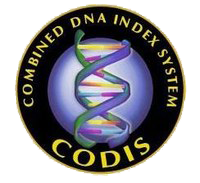Combined DNA Index System
Combined DNA Index System
The Combined DNA Index System (CODIS) is a software platform that blends forensic science and computer technology. It is used to maintain and search DNA profiles created by federal, state, and local crime laboratories in the United States. CODIS was established and is managed by the Federal Bureau of Investigation (FBI).
History[edit | edit source]
CODIS was launched in 1990 as a pilot project to assist in criminal investigations by creating a centralized database of DNA profiles. The system became fully operational in 1998, following the passage of the DNA Identification Act of 1994, which provided the legal framework for the collection and use of DNA profiles in criminal investigations.
Structure[edit | edit source]
CODIS operates on three levels: local (LDIS), state (SDIS), and national (NDIS). Each level allows for the storage and searching of DNA profiles.
- Local DNA Index System (LDIS): Managed by individual crime laboratories.
- State DNA Index System (SDIS): Managed by state laboratories, which can access and share data with local laboratories.
- National DNA Index System (NDIS): Managed by the FBI, allowing for the sharing of DNA profiles across state lines and with federal agencies.
Functionality[edit | edit source]
CODIS enables the comparison of DNA profiles from crime scenes, convicted offenders, arrestees, and missing persons. The system uses a set of standardized Short Tandem Repeat (STR) markers to ensure consistency and reliability in DNA profiling.
Applications[edit | edit source]
CODIS is used in various applications, including:
- Identifying suspects in criminal investigations.
- Exonerating individuals wrongfully accused or convicted of crimes.
- Identifying human remains in mass disasters.
- Linking serial crimes to a single perpetrator.
Privacy and Ethical Considerations[edit | edit source]
The use of CODIS raises important privacy and ethical issues. The collection and storage of DNA profiles must comply with legal standards to protect individuals' privacy rights. The Fourth Amendment of the United States Constitution provides protections against unreasonable searches and seizures, which is a critical consideration in the context of DNA collection.
Related Pages[edit | edit source]
- DNA profiling
- Forensic science
- Federal Bureau of Investigation
- Short Tandem Repeat
- DNA Identification Act of 1994
See Also[edit | edit source]
This article is a Forensic science stub. You can help WikiMD by expanding it!
Search WikiMD
Ad.Tired of being Overweight? Try W8MD's NYC physician weight loss.
Semaglutide (Ozempic / Wegovy and Tirzepatide (Mounjaro / Zepbound) available. Call 718 946 5500.
Advertise on WikiMD
|
WikiMD's Wellness Encyclopedia |
| Let Food Be Thy Medicine Medicine Thy Food - Hippocrates |
Translate this page: - East Asian
中文,
日本,
한국어,
South Asian
हिन्दी,
தமிழ்,
తెలుగు,
Urdu,
ಕನ್ನಡ,
Southeast Asian
Indonesian,
Vietnamese,
Thai,
မြန်မာဘာသာ,
বাংলা
European
español,
Deutsch,
français,
Greek,
português do Brasil,
polski,
română,
русский,
Nederlands,
norsk,
svenska,
suomi,
Italian
Middle Eastern & African
عربى,
Turkish,
Persian,
Hebrew,
Afrikaans,
isiZulu,
Kiswahili,
Other
Bulgarian,
Hungarian,
Czech,
Swedish,
മലയാളം,
मराठी,
ਪੰਜਾਬੀ,
ગુજરાતી,
Portuguese,
Ukrainian
Medical Disclaimer: WikiMD is not a substitute for professional medical advice. The information on WikiMD is provided as an information resource only, may be incorrect, outdated or misleading, and is not to be used or relied on for any diagnostic or treatment purposes. Please consult your health care provider before making any healthcare decisions or for guidance about a specific medical condition. WikiMD expressly disclaims responsibility, and shall have no liability, for any damages, loss, injury, or liability whatsoever suffered as a result of your reliance on the information contained in this site. By visiting this site you agree to the foregoing terms and conditions, which may from time to time be changed or supplemented by WikiMD. If you do not agree to the foregoing terms and conditions, you should not enter or use this site. See full disclaimer.
Credits:Most images are courtesy of Wikimedia commons, and templates, categories Wikipedia, licensed under CC BY SA or similar.
Contributors: Prab R. Tumpati, MD

